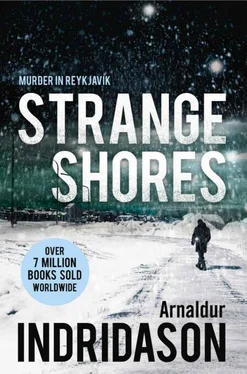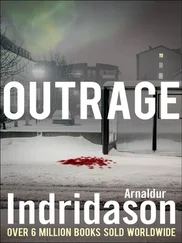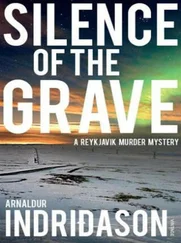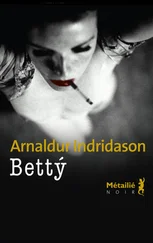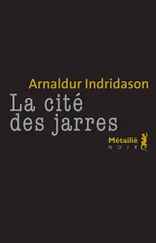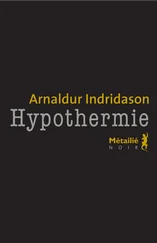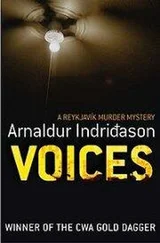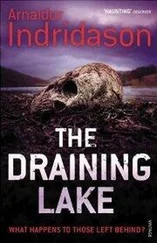Arnaldur Indridason - Strange Shores
Здесь есть возможность читать онлайн «Arnaldur Indridason - Strange Shores» весь текст электронной книги совершенно бесплатно (целиком полную версию без сокращений). В некоторых случаях можно слушать аудио, скачать через торрент в формате fb2 и присутствует краткое содержание. Год выпуска: 2013, Издательство: Random House, Жанр: Полицейский детектив, на английском языке. Описание произведения, (предисловие) а так же отзывы посетителей доступны на портале библиотеки ЛибКат.
- Название:Strange Shores
- Автор:
- Издательство:Random House
- Жанр:
- Год:2013
- ISBN:нет данных
- Рейтинг книги:4 / 5. Голосов: 1
-
Избранное:Добавить в избранное
- Отзывы:
-
Ваша оценка:
- 80
- 1
- 2
- 3
- 4
- 5
Strange Shores: краткое содержание, описание и аннотация
Предлагаем к чтению аннотацию, описание, краткое содержание или предисловие (зависит от того, что написал сам автор книги «Strange Shores»). Если вы не нашли необходимую информацию о книге — напишите в комментариях, мы постараемся отыскать её.
Strange Shores — читать онлайн бесплатно полную книгу (весь текст) целиком
Ниже представлен текст книги, разбитый по страницам. Система сохранения места последней прочитанной страницы, позволяет с удобством читать онлайн бесплатно книгу «Strange Shores», без необходимости каждый раз заново искать на чём Вы остановились. Поставьте закладку, и сможете в любой момент перейти на страницу, на которой закончили чтение.
Интервал:
Закладка:
Like his father, Erlendur had never settled into the new environment, never understood what he was doing there or adjusted properly. All he knew was that somewhere on his journey through life time had come to a standstill, and he had never managed to wind the mechanism up again. When he stood there with the bones in his hands, he had experienced no elation, no sense that his suffering was at last over and he had received answers to the questions that had dogged him ever since his brother’s disappearance. Any hope of happiness was long forgotten.
Erlendur raised his eyes to the mountains. Snow was falling on their slopes.
He shifted his gaze to the cemetery, to the rows of headstones and crosses. Born. Died. Buried. Beloved wife. Blessed be your memory. Rest in peace. Death above and all around.
Death in a small box.
Looking again at the bones, he knew in his heart that he had recovered two tiny fragments of his brother’s remains. For years he had been trying to envisage how he would react if he ever found himself in this position. Now an answer of sorts was at hand. But he felt numb. Empty. These little fragments of bone couldn’t satisfy his questions. It was impossible to say exactly where his brother had died and it would always be a mystery how his bones had ended up on the northern slopes of Hardskafi. Nothing would alter the fact that he had died in a blizzard at the age of eight. The discovery of his bones brought Erlendur no fresh insights. It was merely confirmation of what he already knew. After all these years, however, it did bring some small sense of closure, however paltry. What remained was a feeling of emptiness more desolate than anything he had ever experienced.
His gaze wandered among the graves and crosses, and somewhere in his mind a year and date registered as familiar, as significant. He went back over the inscriptions, trying to work out which was nagging at his memory. The year 1942 caught his eye.
He walked over to the headstone of weathered granite that projected a metre above the snow. It turned out to be the year that a woman called Thórhildur Vilhjálmsdóttir had died. She had been born in 1850. Erlendur did some quick mental arithmetic. She had been ninety-one when she passed away. She had been born on 7 September in the mid-nineteenth century and died on 14 January 1942, in the middle of the Second World War.
He considered the date again. She had died on 14 January in the year Matthildur went missing. Thórhildur had died a week before the storm in which the British servicemen came to grief. A week before Matthildur vanished.
He frowned down at the woman’s grave. No doubt the stone had been erected some time after her death, maybe years or even decades later. It was impossible to tell. But one could be fairly confident that not much more than a week would have elapsed between her death and funeral. The storm of 21 January might have occasioned a delay but it was also possible that Thórhildur had been buried before it struck.
Erlendur stood, lost in thought, concentrating on the date. January 1942. He considered the storm that had been raging, and Matthildur’s death, and Ezra. But most of all he focused on Jakob and the options that would have been available to him. He realised that he would need to consult a copy of the parish register.
After receiving directions to the vicar’s house from the staff at the petrol station, he drove straight round and rang the doorbell. A middle-aged woman answered and he asked to see the vicar. The woman explained that he had gone on a short trip to Reykjavík but would be back in a couple of days.
‘Do you know where I could get hold of the parish registers dating back to the Second World War?’ he asked, making an effort to hide his impatience.
‘Parish registers?’ repeated the woman. ‘I’m afraid I don’t. You mean the old ones? I expect they’re kept at the Regional Museum in Egilsstadir. That would be my guess. Though no doubt my husband Rúnar could help you if he was here.’
Erlendur thanked her, drove back to the petrol station and borrowed their phone to ring the museum. He hadn’t charged his mobile once since arriving in the east. He was informed that the Eskifjördur parish registers were indeed in their archives and he was welcome to consult them if he wished. He had noted down Thórhildur’s dates before leaving the graveyard, so he got back in his car and made the now familiar journey up the Fagridalur Valley to Egilsstadir.
When he asked to see the Eskifjördur church records dating back to the war, the museum curator, who turned out to be the man who had answered the phone, couldn’t have been more obliging. Having shown Erlendur to a table where he could peruse the ledger at his leisure, he went and fetched it.
Erlendur turned the pages until he reached the beginning of 1942. There had only been the one funeral between New Year and March. He recalled Ezra telling him that he had encountered Jakob in the cemetery in March, two months after Matthildur went missing, and that he had been digging a grave at the time.
Thórhildur had been buried on 23 January, two days after the storm. Nine days after she had passed away.
The vicar’s brief, cryptic marginal note came as no surprise to Erlendur.
Gr. d. by Jak. R.
Grave dug by Jakob Ragnarsson.
56
Two hours later he was standing beside Thórhildur Vilhjálmsdóttir’s grave again. He had already dug up one coffin recently and was not at all sure he wanted to repeat the experience, but he could not confirm his suspicions by any other method. He was feeling fairly certain of his theory after turning the matter over in his mind all the way back from Egilsstadir.
This time, however, he didn’t believe he would need to dig as far to find the evidence. It was unlikely he would have to disinter Thórhildur’s coffin or excavate underneath it. Jakob would presumably have taken the easiest course, especially as he wouldn’t have had much time in which to act. In any case, there would have been little risk that anyone would ever want to re-examine the body of a woman in her nineties. The longer Erlendur stood over her grave, the more convinced he became that he would need to dig no more than a metre to find what he sought.
The light was already failing, so he decided to wait until it was fully dark. He got back into the car, switched on the heater and settled down to listen to a radio station playing modern jazz that he didn’t recognise but found relaxing. He tried to unwind, tried to stop himself brooding on Ezra, Matthildur and Jakob, on his brother and the box of bones, and all that he had discovered during his few days’ leave in the East Fjords. He hadn’t thought about home once, so preoccupied had he been with his investigation. The case had gnawed at him for years. In fact, he had toyed with the idea of looking into Matthildur’s disappearance before now, but it was that chance encounter with Bóas on the moor that had provided the impetus. He hadn’t really needed to think twice before going to visit Hrund. He longed to know more. To find out why. Someone had told him it didn’t matter any more, that the passing years and time’s destructive power had erased all need for any investigation. It would change nothing; it only had relevance for a handful of people now. This was true up to a point. There was no danger: only one person had any interests to protect. But Erlendur knew better. When a loved one went missing time changed nothing. Admittedly, it dulled the pain, but by the same token the loss became a lifelong companion for those who survived, making the grief keener and deeper in a way he couldn’t explain.
His thoughts turned to his daughter and their last meeting, when she said she had forgiven him for all the years of neglect since he divorced her mother. And his son, who never made any demands on him, and Valgerdur who simply tried to make his life easier. And Marion Briem who had died such a lonely death. His colleagues too, Elínborg and Sigurdur Óli. The cases they had investigated, the years they had worked together.
Читать дальшеИнтервал:
Закладка:
Похожие книги на «Strange Shores»
Представляем Вашему вниманию похожие книги на «Strange Shores» списком для выбора. Мы отобрали схожую по названию и смыслу литературу в надежде предоставить читателям больше вариантов отыскать новые, интересные, ещё непрочитанные произведения.
Обсуждение, отзывы о книге «Strange Shores» и просто собственные мнения читателей. Оставьте ваши комментарии, напишите, что Вы думаете о произведении, его смысле или главных героях. Укажите что конкретно понравилось, а что нет, и почему Вы так считаете.
